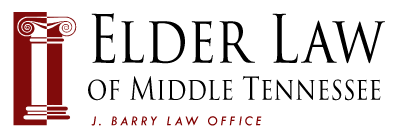The trustee is the person responsible for the management of a trust. He or she has a duty of loyalty, known as a fiduciary responsibility, for the beneficiaries of the trust. This places a legally enforceable standard of care on the trustee.
The trustee must
- Protect the assets of the trust and invest prudently.
- Understand the Trust terms. It is the road map of the trust.
- Distribute trust assets to the beneficiaries according to the directions in the trust. Be as objective as possible.
- Act in the best interest of the Trust and the beneficiaries.
- Not commingle personal and other assets with Trust assets.
- Keep detailed records of transactions, receipts, accountings, communications with beneficiaries, and statements.
What is the difference in a Trustee for an Irrevocable Trust and a Revocable Trust?
Normally, the Trustee for an Irrevocable Asset Protection Trust will be someone other than the person putting assets into the Trust, also known as the Grantor. The benefits of the Grantor putting in the assets are that they are taxed at the Grantor’s tax rate. However, irrevocable for asset protection means that the Grantor does not have direct access to the assets in the Trust. That can be frustrating for the Grantor, but it is also the key to making the assets protected from scammers, creditors, and TennCare.
Alternatively, a Trustee for a Revocable Trust can be the Grantor himself/herself. The Grantor/Trustee can move assets around in the Trust, take them out, or add assets to it. The benefit of a Revocable Trust is that at death, the Trust becomes irrevocable and passes to the designated beneficiaries, bypassing probate. However, a Revocable Trust is subject to creditors, scammers, and TennCare. If the Grantor can reach it easily, so can others.
Is it better to have a family member serve as a Trustee of an Irrevocable Trust or should they be a professional?
It depends.
Ask yourself these questions: Do we have a child or sibling or other family member…
-
- who is competent to handle finances and taxes?
- who can be impartial and objective in discretionary distributions?
- who is not encumbered already with many responsibilities?
- who wants to take on this responsibility?
If you answered no to any of the above, then you may want to consider a good friend or a professional.
Trustees carry a great responsibility and important role in the care of your future. Find someone you trust to carry out your wishes when you cannot.
We Can Help
We can walk you through the process of establishing a SNT that is right for you and your family. You and they will be taken care of. We are here to help guide you as you make decisions regarding your estate and long term care planning needs. Whatever issue is preventing you from developing a more extensive estate plan, please allow Elder Law of Middle Tennessee to assist you in this process.
For more information, contact our Lebanon, TN office at 615-444-3568 and schedule your appointment today.

